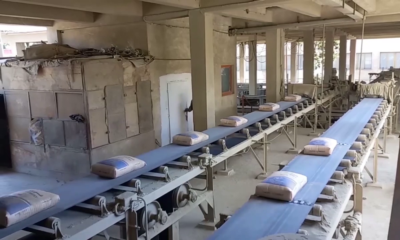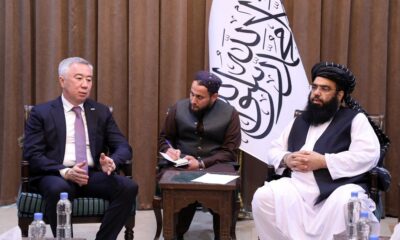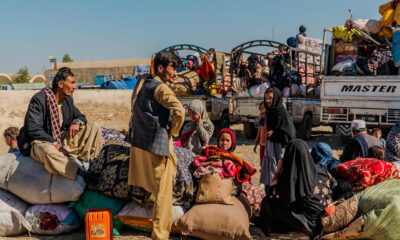Business
Contracts signed to improve services at Afghan airports

Afghanistan Civil Aviation Authority and Group 42 of the United Arab Emirates signed three contracts in the areas of security services, operation management, ground handling, and aviation systems and technology on Thursday.
The contract was signed by Mohammad Qasim Wafayezada, Head of Afghanistan Civil Aviation Authority, and Mansoor Al-Mansoori, Chief Operating Officer of Group 42 of the UAE in the presence of President Ashraf Ghani, the national security advisor Hamdullah Mohib, and Acting Minister of Finance Abdul Hadi Arghandiwal at the Presidential Palace on Thursday afternoon.
The Presidential Palace said in a statement that Ataullah Nasib, Head of Investment Facilitation Unit of Office of the President said UAE’s Group 42 develop and deploy high-impact industry solutions in the sectors of aviation, energy, healthcare, oil and gas, and extractive industry, adding that the company showed willingness and commitment to enter into cooperation with Afghanistan in areas related to civil aviation, mainly for Afghanistan’s four international airports.
Terming the contracts ‘truly strategic, President Ashraf Ghani said, “We celebrated the birth of Prophet Mohammad (PBUH) this morning and signed strategic cooperation agreement with the UAE company in the afternoon.”
He added that historical and political relations between Afghanistan and UAE can be named as ‘comprehensive economic partnership’.
President Ghani said, unfortunately, the great potentials at Afghanistan international airports haven’t been utilized. He stressed that the government has entered into cooperation with G42 as the company has great experiences in the fields of security services, ground handling, and aviation systems and technology.
“I am confident that officials, service personnel of airports, clients, and our people will feel the tangible changes upon implementation of these contracts,” Ghani added.
“Our airports are our vital infrastructures so we need to ensure standard service delivery which is essential in terms of operation management and ground handling,” added the president while underlining that export of Afghan products through air corridor should meet those standards.
President Ghani highlighted that Hamid Karzai International Airport has great potentials to turn into a cargo platform.
He added that international airports of Kandahar and Herat can serve as connection points with UAE and Mawlana Jalaluddin Balkhi airport can link Afghanistan to Central Asia, which altogether create a suitable network of airports.
Meanwhile, Mansoor Al-Mansoori stated that the contracts would create more opportunities for cooperation between Afghan and UAE institutions.
He noted that Afghanistan and UAE enjoy historical and friendly ties that have been further consolidated within recent years.
Business
Azizi calls on Malaysian investors to invest in Afghanistan
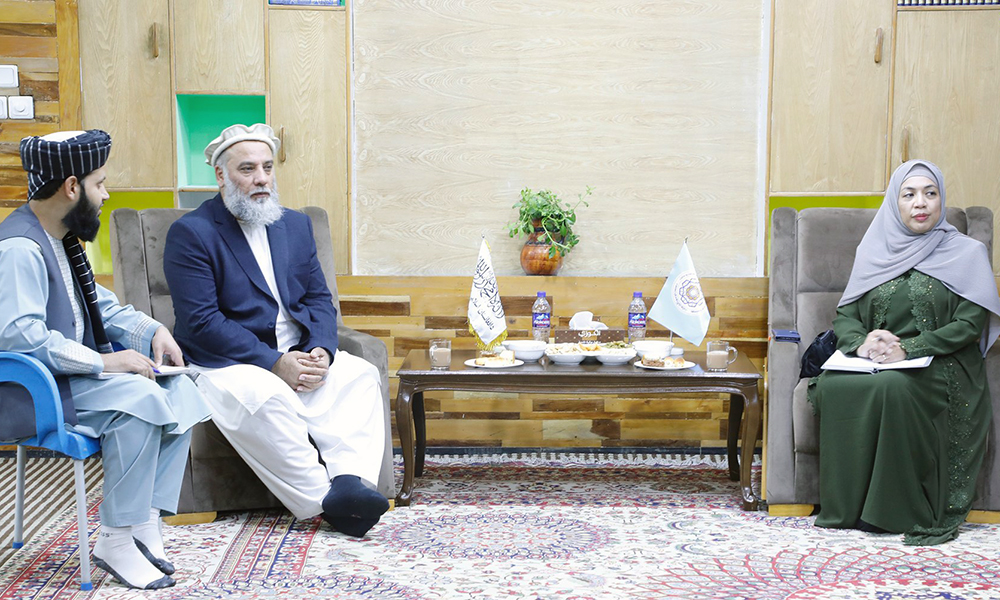
Nooruddin Azizi, Acting Minister of Commerce and Industry, met with representatives from the ministries of foreign affairs, defense and interior of Malaysia, along with other senior officials, on Wednesday and called on Malaysians to invest in Afghanistan.
The visiting delegation is being led by senior diplomat Dr. Shazelina Zainul Abidin.
According to the IEA’s foreign ministry, the two sides discussed bilateral trade, holding a business communication conference to strengthen trade relations between the two countries, the trade balance between Afghanistan and Malaysia, and creating a market for Afghan products, including carpets, cotton, and minerals.
According to the ministry, at the end of the meeting, the Acting Minister emphasized the increase of investment from regional countries in Afghanistan and called on Malaysian investors to also invest in Afghanistan.
Business
Afghanistan starts exporting via railway to Turkey

The Ministry of Interior says that Afghanistan has started exporting goods to Turkey via the Herat-Khaf railway line.
In a post on X, the ministry said: “Afghanistan’s exports to Turkey started in a calm atmosphere through the Herat-Khaf railway line.”
The ministry added that one train will run daily for a month and then two trains will run daily.
According to the ministry, the security of Khaf-Herat railway line is provided by the guards of the National Public Protection Agency.
Khaf-Herat railway project not only connects Iran and Afghanistan by rail, but also completes a 2,000-kilometer route along the east-west rail corridor from China, through Uzbekistan, to Afghanistan, to Iran, and on to Turkey and Europe.
As a landlocked country, this railway network will provide a safe route to connect with Europe via Iran’s railway network and Iran’s southern ports.
This railway line is strategic for trade between Iran and Afghanistan and will allow six million tons of goods to be sent between the two countries.
Business
Afghanistan, Kazakhstan to hold joint expo in Kabul
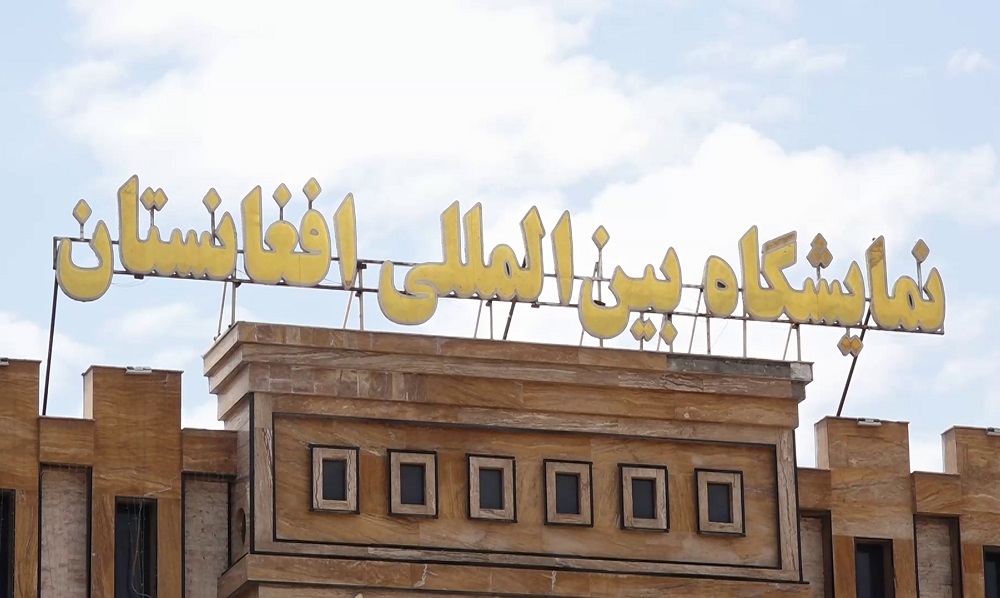
A joint expo between Afghanistan and Kazakhstan will be held in Kabul in the next four days, officials said on Sunday.
Officials of the Ministry of Industry and Commerce said that the two-day expo will be held for the purpose of expanding and strengthening trade relations between the two countries.
“This expo will be held as a follow-up of the Kazakh-Afghan international expo, which was held in the city of Astana, Kazakhstan, with the participation of a large delegation of the government and the private sector of the Islamic Emirate of Afghanistan,” Abdulsalam Javad Akhundzadeh, the spokesman of the Ministry of Industry and Commerce, said.
“At this expo, domestic products from different sectors of Afghanistan and the Republic of Kazakhstan will be put on display for two days.”
According to officials, 40 large Kazakh companies, and 40 large Afghan companies will exhibit their products.
Mohammad Saber Latifi, head of the Afghanistan International Expo Center, said that fruits, minerals and commercial services will be displayed at the expo.
During the expo, various memorandums of understanding for the trade of goods are also expected to be signed by companies.
-

 World5 days ago
World5 days agoNorth Korea officials visit Iran in a rare public trip
-

 Sport4 days ago
Sport4 days ago‘Serious talent’ Fraser-McGurk bonds with Warner to light up IPL
-

 Latest News4 days ago
Latest News4 days agoOver 1,000 Afghan refugees forced out of Pakistan in one day
-

 Sport2 days ago
Sport2 days agoAfghanistan beat Iraq 5-3, inch closer to Futsal World Cup berth
-

 Regional2 days ago
Regional2 days agoNew UK sanctions target Iranian drone industry
-

 Regional4 days ago
Regional4 days agoTurkey accuses U.S. of double standards over Gaza in rights report
-

 Latest News2 days ago
Latest News2 days agoEU allocates 17 million euros to support Afghans on the move
-

 Latest News2 days ago
Latest News2 days agoPakistan extends registered Afghan refugees’ stay till June 30




